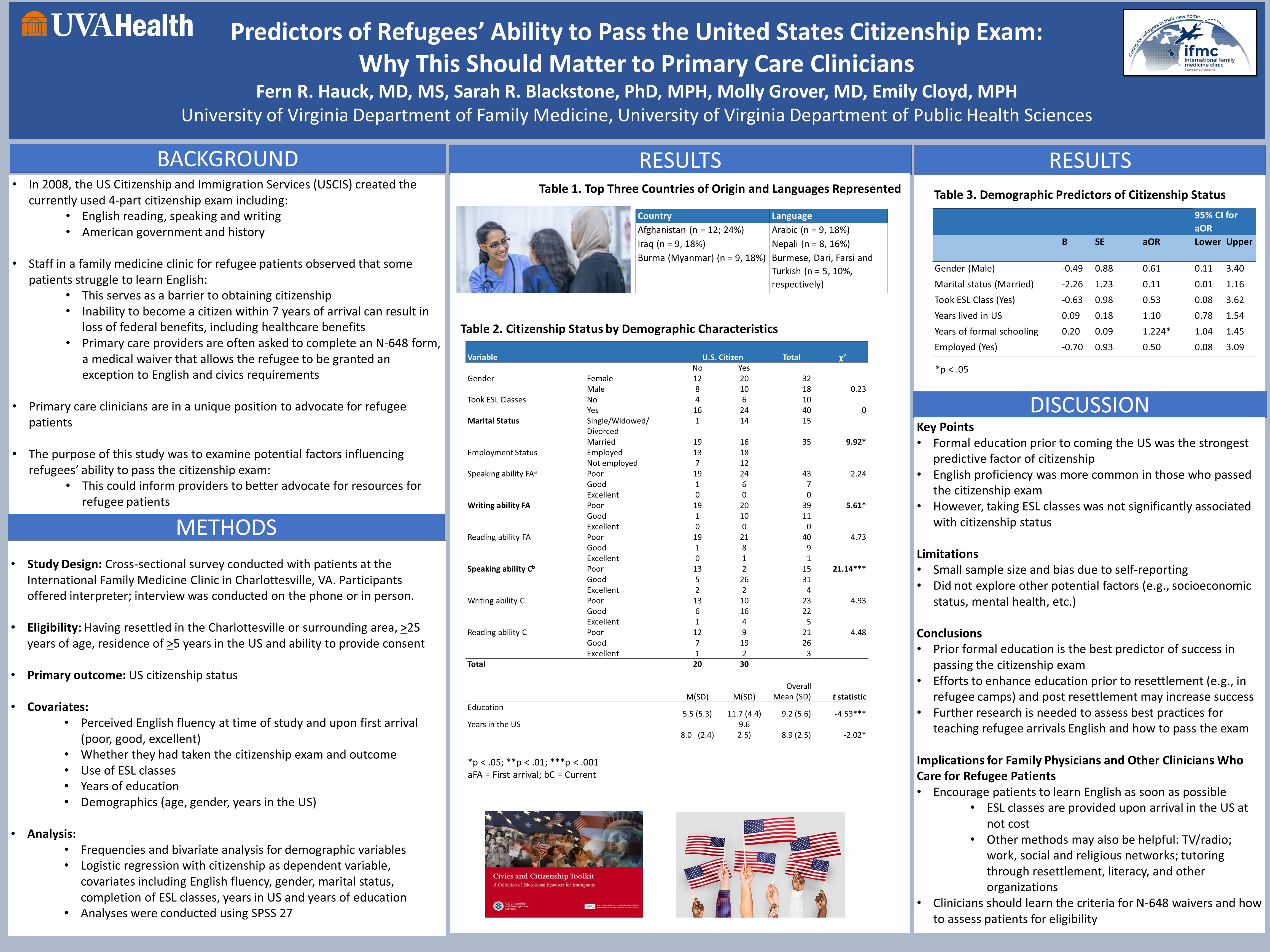PCR056: Predictors of Refugees’ Ability to Pass the US Citizenship Exam: Why This Should Matter to Primary Care Clinicians
Fern Hauck, MD, MS; Sarah Blackstone, PhD, MPH; Molly Grover; Emily Cloyd, MPH
Abstract
Context: Inability of refugees to become American citizens within 7 years of arrival can result in the loss of federal means-tested public benefits (such as Medicaid), placing them in a financially vulnerable position. If struggling to learn English, patients will often ask their physician to complete an N-648 form, a medical waiver that would allow the refugee to be granted an exception to the English and civics requirements. Primary care providers are increasingly caring for refugee patients and may be called on for assistance, thus understanding the factors that impact refugee patients’ ability to pass the US citizenship exam would help in caring for them. Objective: To examine factors influencing refugees’ ability to pass the citizenship exam, including English proficiency, education, employment and completion of English as a Second Language (ESL) classes. Study Design: Survey. Setting: Family medicine based refugee clinic. Population Studied: Refugee patients. Eligibility criteria: age >25 years, residence of at least 5 years in the US, and ability to provide consent. Outcome measures: Current citizenship status. Results: 50 eligible participants completed the study: 32 (64%) were female, mean age was 48.5 (SD = 12.8) years. Participants lived in the US for an average of 16 (SD = 8.9) years and had a mean of 9.2 (SD = 5.6) years of formal education. Two measures of English fluency were significantly related to citizenship: writing ability upon first arrival (excellent/good vs poor), χ2 (2) = 5.61, p < .05 and current speaking ability (excellent/good vs poor), χ2 (2) = 21.1, p < .001). The logistic regression model examining the impact of demographic factors on citizenship was statistically significant, χ2 (6) = 22.5, p < .001 and explained 49.7% of the variance (Nagelkere R2). More years of education was associated with greater odds of citizenship (1.22, 95% CI, 1.03, 1.45). Conclusions: Obtaining citizenship is an important milestone for refugees, as it can impact their access to healthcare and other benefits. Clinicians should encourage their patients to take ESL classes and give them information regarding community resources as early as their initial health screening. Further research needs to identify successful models to help refugees achieve English fluency and assist them in passing the US citizenship exam.

Jack Westfall
jwestfall@aafp.org 11/20/2021This is a great topic and research study. Nice work. Thanks